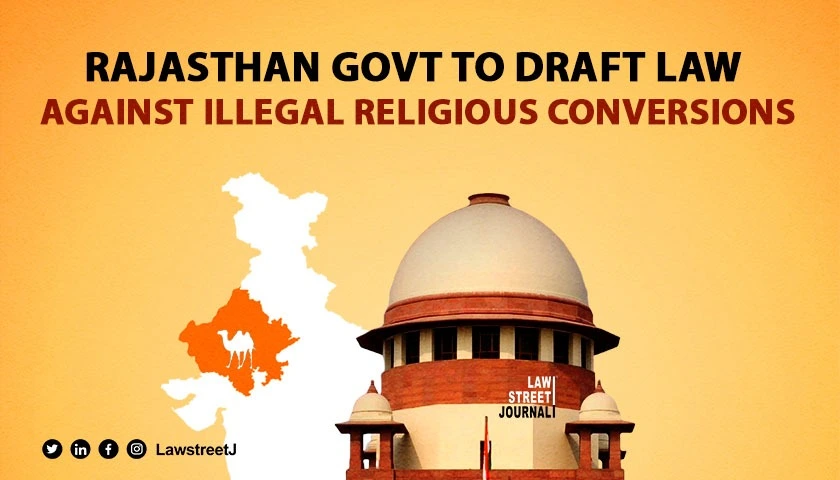NEW DELHI: The Rajasthan government has informed the Supreme Court that it is in the process of bringing in its own legislation to check illegal conversion since it does not have any specific law in respect to conversion from one religion to another.
However, till the time of new enactment, the state government claimed it strictly adhered to the guidelines issued by the top court, and High Courts in different cases and the Centre in this regard.
The state government clarified its stand with regard to illegal and forceful conversion by filing an affidavit in the apex court recently.
The BJP government's position on the subject in line with the stated policy of the party as several other saffron party government had in the past tried to bring in anti conversion law.
In its response to a PIL filed by advocate Ashwini Kumar Upadhyay, the state government said, "State of Rajasthan is filing the present affidavit to apprise this court that it does not have any specific legislation with respect to conversion from one religion to another. Although the state government is strictly adhering to the guidelines issued by this Court, High Court of Rajasthan laid down in different cases and the Centre."
It also said the State of Rajasthan is in the process of bringing its own legislation and till such time will strictly abide by the law on the subject, guidelines or directions passed by this court.
Citing alleged suicide by a 17-year-old girl, Lavanya on January 19, 2022 in Thanjavur in Tamil Nadu, Upadhyay filed the plea, claiming the Centre and States have failed to control menace of deceitful religious conversion, though it is their duty under Articles 14, 21, 25 of the Constitution.
He claimed since the penal law does not cover religious conversion, many states have become the safe place for foreign funded individuals, and NGOs for illegal conversion.
On September 23, 2022, the Supreme Court issued notice to the Centre and others seeking their response to the plea for a direction to control fraudulent religious conversion and those carried out by intimidation, threat, deceit, and through gifts and monetary benefits.















